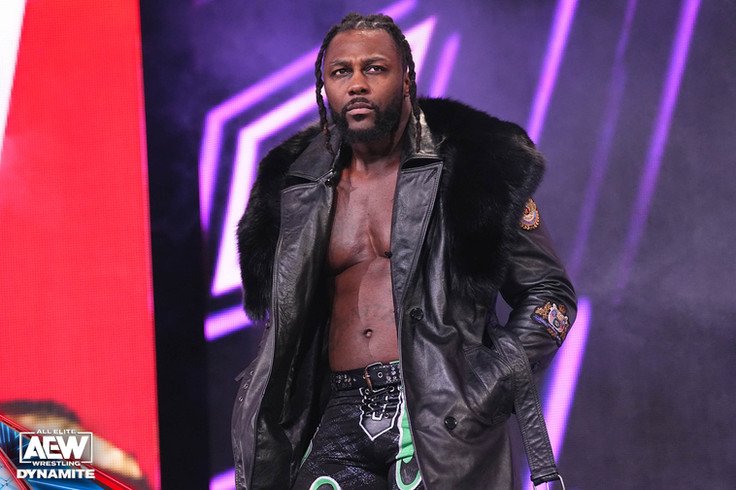
On a recent edition of “The @smoothvega Podcast,” AEW wrestler Swerve Strickland discussed Hit Row’s struggles in WWE following his release.
Strickland revealed that when WWE called him to discuss a potential return, he didn’t answer the phone.
You can check out some highlights from the podcast below:
On Hit Row struggling without him: “That comes from experience. I had a different experience than those guys had. I’ve known how to build myself from the ground up on the independents. I knew how to hustle, get here, get to there, put on performances and matches, and then go, ‘How do I get that?’ Then monetize that into this and make this into something. Everything, throughout my career, and to this day, I apply; one thing leads to another and to another. That’s kind of how you see those little things in my entrance and my music, my wrestling, my look, the sound, all that was weaving together from going from here to here to hustling. That’s something those guys still need to learn.”
On why it’s tough in WWE: “It’s tough in that organization, WWE, it’s really tough creatively when you don’t have your hands on your creative, and it’s left to the powers that be to maneuver you how they see fit, and that’s not easy for anybody. For me, I was in a place where I knew I needed to be. I needed to be in AEW. When I got the phone call to go back, I didn’t even answer it. It was, ‘Nope.’”
In a recent episode of “The @smoothvega Podcast,” AEW wrestler Swerve Strickland opened up about Hit Row’s struggles in WWE following his release. He discussed his own experience and why he chose not to return to the company when they reached out to him.
Strickland highlighted the difference in experience between himself and the members of Hit Row. He explained that he had built himself from the ground up on the independent wrestling scene, learning how to hustle and create opportunities for himself. This experience allowed him to understand how to progress in his career, monetize his skills, and turn them into something bigger. He believes that this is something the members of Hit Row still need to learn.
One of the challenges Strickland mentioned about working in WWE is the lack of creative control. He emphasized that it can be tough when your creative direction is dictated by others, without having a say in how you are presented to the audience. Strickland felt that he needed to be in AEW, where he could have more control over his character and storyline. When WWE called him for a potential return, he made the decision not to answer the phone, indicating that he was content with his current situation.
This insight from Strickland sheds light on the challenges that wrestlers face in WWE and the importance of creative freedom in their careers. It also highlights the value of experience and the ability to navigate the wrestling industry independently. Strickland’s decision to prioritize his creative control and choose a path that aligns with his goals serves as an example for other wrestlers who may be facing similar dilemmas.
Overall, Strickland’s comments provide valuable insights into the struggles faced by wrestlers in WWE and the importance of creative autonomy in their careers. His decision to stay with AEW demonstrates the significance of finding a wrestling promotion that allows wrestlers to have a say in their own creative direction. As the wrestling industry continues to evolve, it is crucial for wrestlers to prioritize their own creative fulfillment and seek opportunities that align with their vision for their careers.
